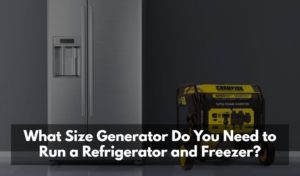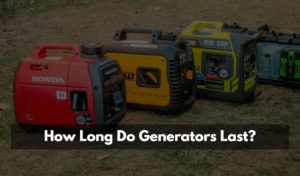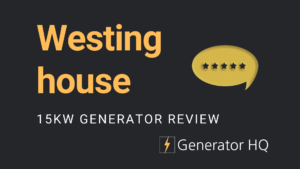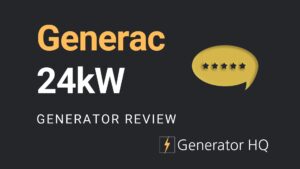
What Size Generator Do You Need to Run a Refrigerator and Freezer?
Welcome to Generator HQ! Please note that some of the links in our articles are affiliate links. This means if you make a purchase through these links, we may earn a commission at no extra cost to you. These commissions support our work and allow us to continue bringing you valuable content. There will be





